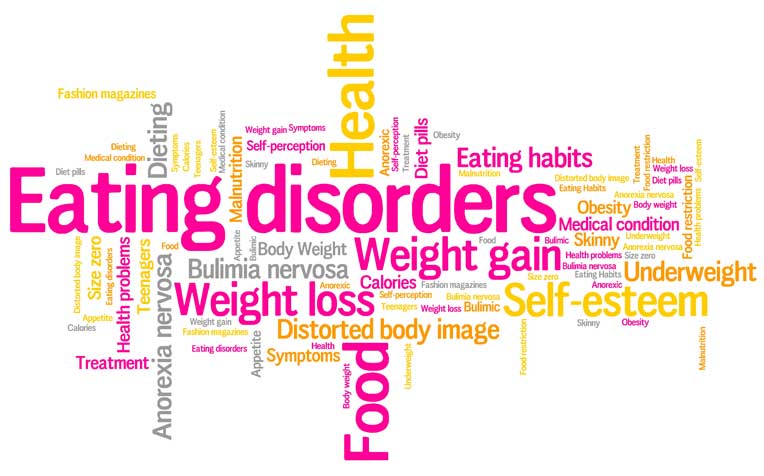
Types of eating disorders include anorexia nervosa, bulimia nervosa, and binge eating disorder.
3 Types of eating disorders
The Eating Disorders Programme from the Department of Psychiatry at Singapore General Hospital (SGH), a member of the SingHealth group, shares the three types of eating disorders.
1. Anorexia nervosa (severe restriction of food intake)
Anorexia nervosa is an eating disorder characterised by an intense fear of becoming fat. People with anorexia severely restrict food and fluids mainly because of a distorted body image and low self-esteem. They normally weigh less than what is developmentally expected for their age and height. There is an intense preoccupation with food and body size.
Most individuals suffering from this eating disorder do not realise how underweight and undernourished they are in spite of comments from other people. They see themselves as overweight, and they constantly deny that they have a problem or that they are too thin. Even after reducing to dangerously low weights, these individuals will still convince themselves that they need to lose more weight, as they have not gotten rid of the perception of being fat.
They develop unusual eating habits such as avoiding food and meals, picking out a few foods and eating them in small quantities, or carefully weighing and portioning food. Anorexics repeatedly check their body weight. Many engage in other techniques to control their weight such as intense and compulsive exercise, or purging by means of vomiting and abuse of laxatives, enemas and diuretics.
2. Bulimia nervosa (cycle of bingeing and purging)
Bulimia is a cycle of uncontrolled binge eating followed by purging through self-induced vomiting or misuse of laxatives or other medication; fasting; or excessive exercise. Individuals with bulimia usually weigh within the normal range for their age and height since the purging or other compensatory behaviour follows the binge-eating episodes.
Like individuals with anorexia, they fear gaining weight, desire to lose weight, and feel intensely dissatisfied with their bodies. People with bulimia often perform the behaviours in secrecy, feeling disgusted and ashamed when they binge, yet relieved once purged.
3. Binge eating disorder (frequent episodes of out-of-control eating)
Binge eating disorder, commonly known as compulsive overeating, is charterised by frequent episodes of out-of-control eating. Therefore, many with the disorder are overweight for their age and height. Feelings of self-disgust and shame associated with this illness can lead to bingeing again, creating a cycle of binge eating.
For more information and tips, download a FREE copy of the "Treating Eating Disorders: The SGH Experience" booklet.
Information modified from National Institute of Mental Health (NIMH).
Ref: U11
Check out other articles on mental health:
Eating Disorders in Men: Causes and When to Seek Help
Anxiety and Depression: When to Seek Help
Mental Health Tips for Using Social Media
20 Stress-Busting Tips from Psychiatrists
Contributed by


















 Get it on Google Play
Get it on Google Play